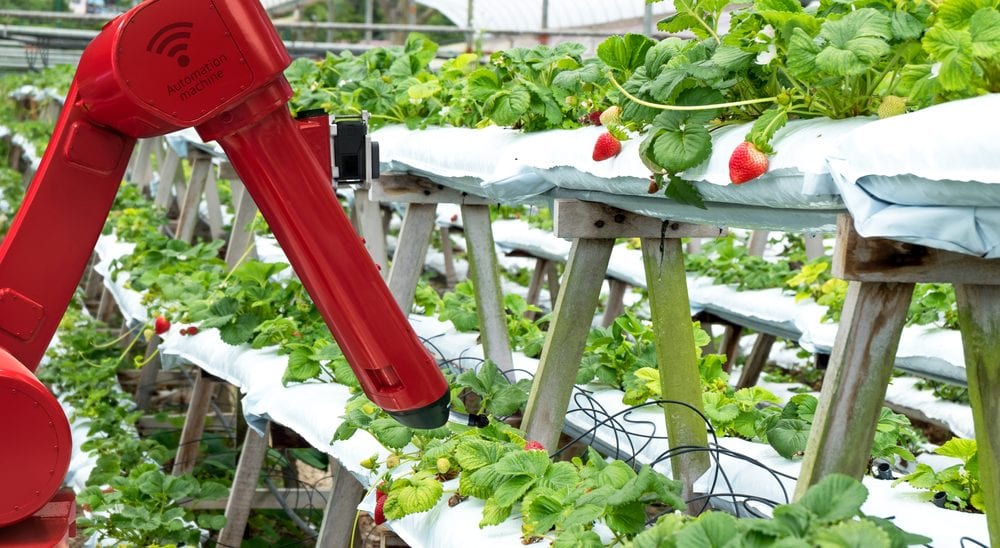Could a robot pick your peaches? How AI could transform global fruit farming

Say ‘artificial intelligence’ and most people still think of big-budget movies and self-driving cars. But AI has come on leaps and bounds in recent years, and with the Covid-19 pandemic forcing all of us to innovate at pace, it could be ready for its big break. One firm in particular could be about to revolutionise global fruit picking.
Hollywood’s imagined applications of artificial intelligence, from Ex Machina to Blade Runner, may attract the attention but in the real-world, a range of distinctly more positive, uses of artificial intelligence have been continually expanding over the last few years.
Necessity is the mother of invention, and the global pandemic that has disrupted so much –
and tragically taken so many – has seen businesses and practices evolve quickly to new challenges, and in industries you might not expect.
As a result of the travel restrictions following the Covid-19 pandemic, there has been a global shortage of seasonal fruit pickers – many of whom move to an area for just a few weeks or months around the harvest time of a particular fruit or vegetable. Stepping into that void, Tevel Aerobotics Technologies has developed a ‘flying autonomous robot’ (FAR) using artificial intelligence which identifies and picks fruit.
Covid-19 is only one of many factors that can mean there are not enough hands to pick fruit at the correct time, often leading to wastage within the orchard, or the fruit being sold at a fraction of its value. It is estimated that a two-week delay to picking fruit can see the end product lose a full 80 per cent of its value.
So what do the robots do? Working 24 hours a day, they use AI perception algorithms to locate the right trees, and use vision algorithms to detect the fruit among the foliage and classify its size and ripeness. Once it’s been chosen – the algorithms ensure only the right fruit is selected – the robot then works out the best way to approach the fruit, remain stable, and then its picking arm grasps the fruit.
Multiple FAR robots can work in the same area without getting in each other’s way, as they are controlled by a single autonomous digital brain in a ground-based unit. They can even take on tasks such as pruning, trimming, and thinning of orchard trees.
Tevel wants to market its first autonomous fruit picking robot-drone by 2021, and has secured investment from Japanese agricultural machinery manufacturer Kubota. There are public concerns – the prospect of unemployment for human fruit pickers chief amongst them. But Tevel has stressed that their robots are designed to complement human fruit pickers, as opposed to replacing them.
The pandemic has been the catalyst for innovation in a whole range of artificial intelligence projects, innovations that will far outlast the ravages of Covid-19. As an investor in companies which use artificial intelligence, and given my deep interest in the application of new technologies to traditional industries, I am especially encouraged to hear of development such as Tevel’s robots. They’ve demonstrated one of many potential uses for AI and innovation in agriculture, helping to eliminate wastage and maximise profitability.
With the need for sustainable food sources ever increasing with a growing global population, that can only be a good thing for the wider world – ensuring affordable, nutritious food is within arm’s reach of everybody around the globe.
